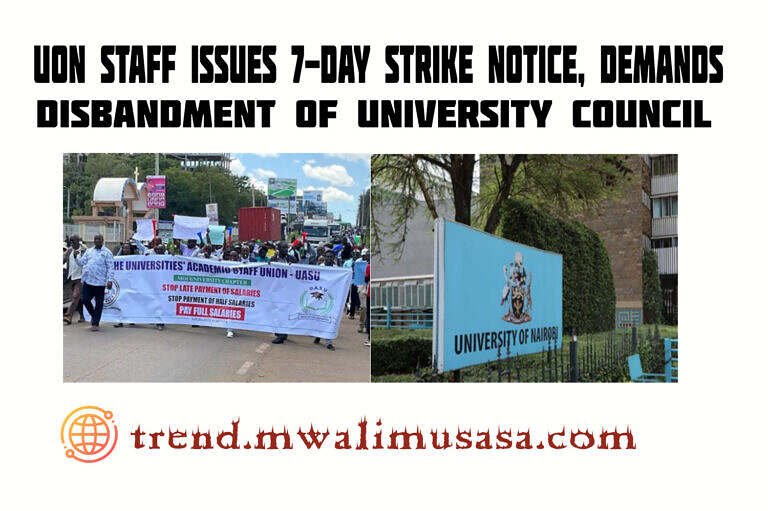
The Opera News Hub serves as a vibrant platform designed to facilitate user-generated content, enabling writers to share their perspectives, stories, and insights with a global audience. Operating within the expansive Opera software ecosystem, the Hub plays a crucial role in encouraging independent creators to voice their opinions and showcase their talents. Writers from diverse backgrounds are drawn to the platform, attracted by the opportunity to connect with readers and express their thoughts on various topics, from politics and technology to lifestyle and culture.
One of the notable features of the Opera News Hub is its focus on democratizing content creation. The platform allows users to publish articles easily, leveraging the wide reach of the Opera browser to gain visibility. This accessibility empowers aspiring writers, as they can instantaneously share their creative works without the need for traditional gatekeeping. Consequently, the Hub serves as a pivotal space for emerging voices to emerge, contributing to a rich tapestry of narratives and viewpoints.
The types of articles commonly found on the Opera News Hub vary significantly, encompassing everything from opinion pieces, reviews, and tutorials to news commentary. This diversity underscores the platform’s commitment to fostering a community where varied content thrives. Writers also benefit from the potential for monetary compensation, making it a compelling option for those looking to earn an income from their writing endeavors. However, this opportunity is accompanied by challenges such as low earnings in comparison to the effort invested and the unpredictable nature of article approvals. As such, the experience for writers on the Opera News Hub is complex and multifaceted, reflecting both the possibilities and hurdles prevailing in the realm of independent digital content creation.
The Earnings Conundrum: Dissecting Compensation for Writers
The compensation structure for writers on the Opera News Hub has become a critical topic of discussion among content creators. Despite the platform’s potential to reach a wide audience, many writers report experiencing low earnings that do not reflect their efforts or the quality of their work. This discrepancy raises concerns about the fairness of the compensation system and its sustainability.
When comparing the earnings from the Opera News Hub to industry standards, writers often note significant differences. Many creators invest considerable time researching, writing, and editing articles, yet the financial return frequently falls short of what they might expect based on their skills and the dedication required to produce high-quality content. This conundrum has prompted numerous writers to reassess their involvement with the platform, contemplating whether the effort is justified given the financial rewards.
Testimonials from writers reveal the depth of their financial struggles. Many express frustration at devoting hours to craft engaging pieces only to receive minimal compensation. Some writers have reported that their earnings per article do not match the rates offered by other platforms and publication outlets in the industry. This has led to a broader conversation about the expectations placed on writers regarding publication quality versus the remuneration they receive. The emotional toll of these experiences can also not be overlooked, as many creators feel their contributions are undervalued, which can dampen their motivation and passion for writing.
The implications of low earnings extend beyond personal finances to affect the overall quality of content produced. If writers are unable to sustain themselves through their writing endeavors, it may result in a decline in the quality of material shared on the Opera News Hub. Understanding and addressing these concerns is essential for fostering a more equitable compensation framework that aligns with industry standards and respects the hard work of writers.
The Article Rejection Process: Understanding the Challenges
The article rejection process on the Opera News Hub has been a significant point of contention among writers, particularly concerning transparency and feedback. Many contributors express frustration over the seemingly arbitrary reasons for article rejections, which often lack clear criteria. When a submission is met with disappointment, writers are frequently left without constructively guiding insights to improve their future articles. This lack of communication can deter them from pursuing further submissions, as the reasons for rejection remain obscure.
A case study that exemplifies this issue involved an article analyzing current international political events, which garnered a substantial amount of engagement from readers. Despite the evident interest, including numerous shares and comments, the article was rejected without detailed justification. Such instances highlight the inconsistency of the editorial process, raising questions about the criteria that determine the acceptability of content. Writers invested considerable time and research into creating articles that not only align with popular interests but also serve to inform and engage readers. The rejections of high-engagement articles further complicate the relationship between writers and the platform.
This lack of clarity contributes to an environment where writers feel underappreciated and undervalued, leading to a decline in morale among contributors. Additionally, many writers express that if they were provided with even basic feedback, they would be more equipped to refine their submissions and contribute more effectively to the platform. The absence of constructive criticism ultimately hampers the potential growth and improvement of both the writers and the quality of content on Opera News Hub. Establishing clearer guidelines and reinforcing transparent communication could significantly enhance the experience for all parties involved.
Impact of Low Earnings and Rejections on Writers’ Morale
The challenges faced by writers on platforms like Opera News Hub extend beyond mere financial implications; they significantly affect the psychological and emotional well-being of authors. Low earnings can lead to a pervasive sense of undervaluation, leaving writers feeling disheartened and unappreciated for their craft. Many writers enter this field motivated by a passion for storytelling and knowledge sharing. However, when the compensation does not align with their expectations or efforts, it can erode that passion, resulting in diminished motivation to create compelling content.
Writers often struggle with the constant fear of rejection from the editorial team. Frequent rejections do not only contribute to feelings of inadequacy but can also lead to a vicious cycle of self-doubt. Authors may begin to question their abilities and the quality of their work, which can further diminish their motivation to push through and produce high-quality articles. Testimonials from writers highlight this dilemma; one writer stated, “Every rejection stings, and when you’re not earning much, it makes you question why you even bother.” Such sentiments are echoed by others who feel that their creativity is not being fostered in a supportive environment.
Additionally, this combination of low pay and ongoing rejection can mask the joy of writing, transforming what was once a fulfilling endeavor into a source of anxiety. Writers often find themselves grappling with the pressure to produce content that meets editorial standards while also battling the nagging doubt about whether their efforts will be recognized and rewarded. The struggle to maintain creativity in an environment that seems intent on undervaluing talent is a significant hurdle for many. Writers highlight a growing sense of isolation, stemming from a lack of encouragement or constructive feedback, further impacting their morale and willingness to engage with the platform.
The Disparity Between Clicks and Monetization
The digital landscape is inhabited by an array of content creators who dedicate significant time and effort to curate articles that resonate with audiences. For writers on platforms like Opera News Hub, there exists a notable disparity between article performance, specifically clicks, and actual monetary compensation. An article that garners high traffic does not necessarily equate to fair earnings, thereby illuminating a concerning flaw in the monetization framework of the platform.
This disconnect raises important questions regarding how authors are rewarded for their creativity and hard work. Writers frequently invest substantial resources—time, research, and creativity—into crafting engaging content with the hope that their efforts will be rewarded. However, the reality often paints a different picture, where high click rates do not translate into proportional financial returns. This alarming trend not only discourages existing writers but also poses a barrier to attracting new talent who may seek more equitable platforms.
Moreover, the implications of this inequity extend beyond individual frustration; they fundamentally shape the quality of content produced. When financial incentives are misaligned, writers might resort to clickbait titles or sensationalized content in a desperate bid for views, sacrificing their artistic integrity. The platform’s monetization policies, in this regard, warrant scrutiny. A revision of these policies, ensuring fair compensation for high-performing articles, is essential to foster a creative environment that values quality over mere quantity.
Ultimately, resolving the disparity between clicks and monetization is critical. It requires collaborative efforts from platform administrators and creators alike to establish guidelines that not only compensate fairly but also promote genuine, high-quality content creation. By addressing these issues directly, Opera News Hub can enhance writer satisfaction, audience trust, and the overall quality of digital journalism.
Community Responses: Voices from the Writing Community
In recent discussions surrounding the challenges faced by writers on the Opera News Hub, a multitude of voices have emerged, expressing both frustration and solidarity. A notable sentiment shared among contributors is the dissatisfaction regarding the low earnings associated with published articles. One anonymous writer commented, “It feels disheartening to pour hours into crafting an article only to receive minimal compensation that doesn’t reflect the effort involved. This situation is leading many to reconsider their commitment to the platform.” Such sentiments are echoed across various social media platforms, where the hashtag #OperaNewsHub has gained traction as writers come together to voice their experiences.
Conversations on forums dedicated to writing have revealed common grievances related to article rejections, which many perceive as unjustified. An individual shared, “I submitted an article that aligned with the platform’s guidelines, only to have it rejected without any clear reasoning. This lack of transparency makes it challenging to improve and understand what is required.” These testimonies highlight a broader concern within the writing community regarding the criteria used by the Opera News Hub for article acceptance, emphasizing a desire for clearer guidelines that could foster better understanding among contributors.
Moreover, writers are collaborating on potential solutions to enhance their situation. Some have suggested forming support groups that would allow them to share tips and strategies for article crafting and submission, thereby improving their chances of acceptance. Additionally, there have been calls for collective dialogue with the platform’s management to address these pressing issues directly. A user noted, “Only by coming together can we truly advocate for change and improve the landscape for all writers on this platform.” The collective push for improvement resonates strongly throughout the community, illustrating a unified front in seeking better working conditions.
Calls for Change: What Writers Are Asking For
Amidst the growing dissatisfaction among contributors to the Opera News Hub, writers are uniting to advocate for necessary changes that promise to enhance their overall experience and promote a more equitable collaboration with the platform. One of the most pressing issues highlighted by writers is the demand for better compensation structures. Many authors feel that the current pay model does not adequately reflect the time, effort, and creative investment required to produce quality articles. Consequently, they are calling for a reassessment of payment tiers and a system that rewards high-performing content more generously.
Writers have also emphasized the need for clearer rejection guidelines. A significant point of contention is the lack of transparency surrounding the reasons for article rejections. Contributors believe that a more defined framework could help them understand the selection process better and improve their future submissions. By implementing more comprehensive guidelines, writers would have a clearer pathway to creating content that aligns better with Opera News Hub’s editorial criteria.
In addition to adjustments in compensation and rejection processes, there is a strong demand for enhanced feedback mechanisms. Writers argue that constructive criticism is crucial for their growth and development. Currently, many feel that the absence of detailed feedback leaves them in the dark regarding their performance, stalling their ability to refine their skills. Improved feedback initiatives could include personalized reviews or structured feedback sessions, fostering a more supportive community where writers can thrive.
Ultimately, these calls for change reflect a desire for a more equitable partnership within the Opera News Hub ecosystem. Writers are seeking acknowledgment of their contributions and a collaborative approach that ensures both parties benefit from the relationship. Addressing these issues is pivotal in cultivating a sustainable and mutually advantageous platform for writers.
Potential Solutions to Address Writers’ Concerns
In light of the ongoing discussions concerning low earnings and article rejections faced by writers on platforms like Opera News Hub, it becomes imperative to explore possible solutions that could alleviate these issues. One strategy involves the adoption of innovative compensation models that ensure fair remuneration for content creators. For example, implementing a tiered payment system could reward writers based on experience, article popularity, and engagement metrics, ultimately leading to enhanced earnings for high-quality contributors.
Another potential avenue is the establishment of clearer guidelines for content submissions. By creating a comprehensive set of criteria and transparent communication channel between platform administrators and writers, the decision-making process regarding article acceptance could be significantly improved. When writers have a better understanding of editorial standards, they are more likely to produce content that aligns with platform expectations, reducing the rates of rejection and fostering a healthier writing environment.
Furthermore, training initiatives and workshops could be introduced to equip writers with essential skills in content creation, SEO optimization, and audience engagement. By investing in the professional development of writers, platforms can enhance the overall quality of submissions while simultaneously boosting the confidence of content creators. This approach not only serves to elevate content quality but also cultivates a more supportive community among writers.
Implementing community feedback mechanisms could also prove beneficial. By allowing writers to voice their concerns and suggestions, platforms can create a more inclusive and responsive environment. This continuous dialogue can lead to constructive changes and adaptations that better serve the needs of writers. Collaboration and constructive industry discourse are vital for driving improvement and fostering a more equitable system for all stakeholders involved.
Conclusion: The Future of the Opera News Hub and Its Writers
The ongoing dialogue regarding the challenges faced by writers on the Opera News Hub underscores numerous pivotal concerns that merit immediate attention. Many contributors have pointed out the inadequacy of earnings, which do not align with the effort and creativity that go into producing quality content. This disparity has led to frustration among participants who wish to share their voices and expertise while being fairly compensated for their work. Furthermore, the issue of unjust article rejections has emerged as a significant point of contention. Writers often find themselves perplexed by the lack of transparency regarding editorial standards, leaving them uncertain about the criteria their submissions are evaluated against.
Addressing these challenges is crucial for the sustainability of the platform. To enhance the relationship between the Opera News Hub and its contributors, it is imperative that the management prioritize open communication regarding editorial policies. By establishing a clear set of guidelines and criteria for article acceptance, the platform could not only increase writer confidence but also fortify the quality of content available to readers. Additionally, a review of the compensation structure would be beneficial in fostering loyalty among writers, encouraging them to consistently produce high-quality articles. Promoting a supportive environment is essential for nurturing creativity and ensuring long-term engagement from contributors.
Ultimately, the future of the Opera News Hub hinges on its ability to cultivate a more equitable platform for all its writers. By addressing the key concerns regarding low earnings and unjust article rejections, both writers and the platform can mutually benefit from a collaborative and thriving ecosystem. Such improvements could solidify the Opera News Hub’s position as a leading content-sharing medium, paving the way for a vibrant community of diverse voices and exceptional quality content.



